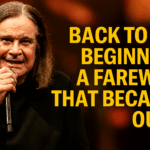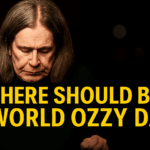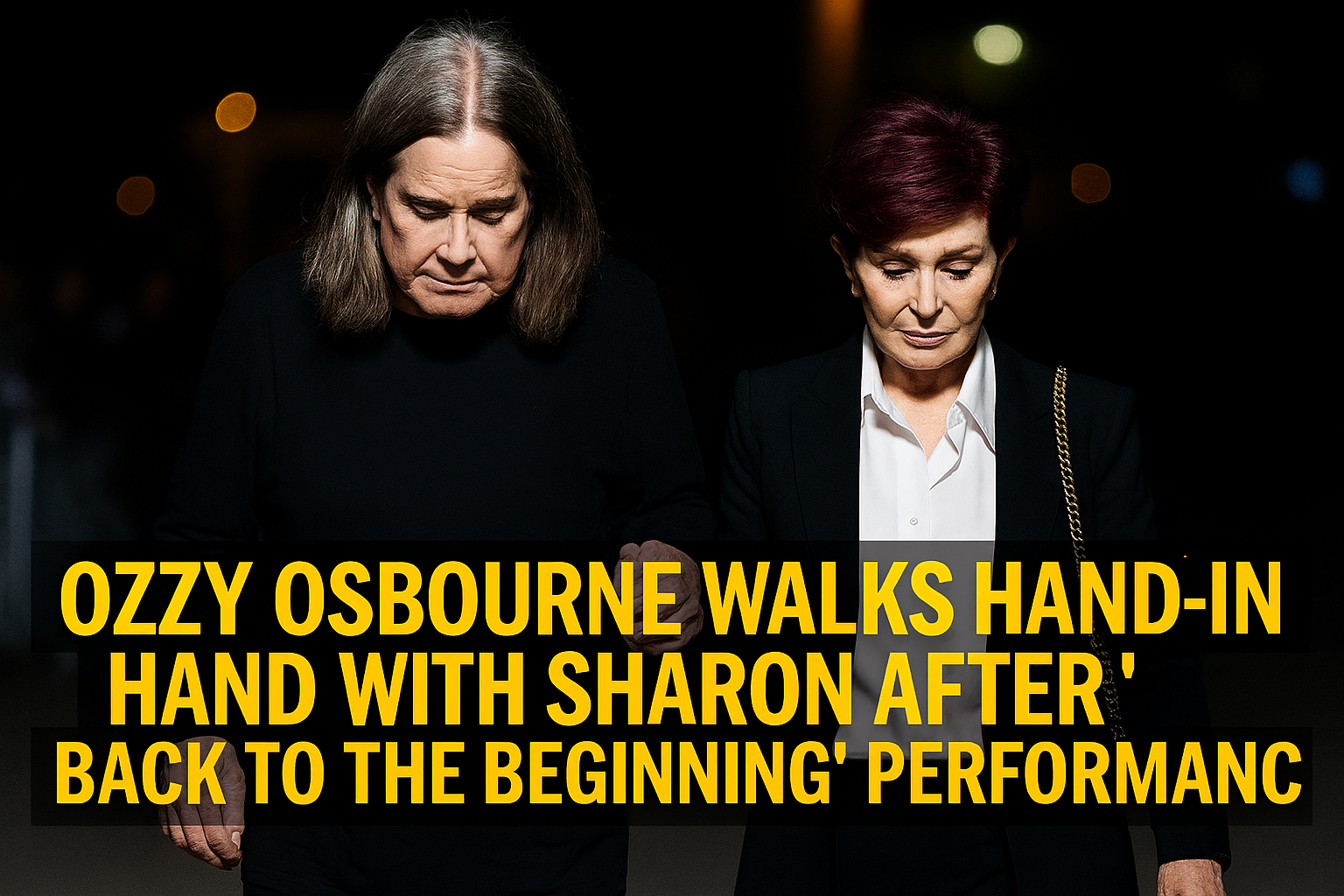Earlier this month, the world lost one of its most iconic and beloved figures in rock history. Ozzy Osbourne, the electrifying frontman of Black Sabbath and a solo artist who redefined heavy metal, passed away at the age of 76. His death marked the end of an era—not just for music, but for pop culture itself. Known equally for his haunting vocals and his chaotic, loving family life, Ozzy was a symbol of rebellion, resilience, and raw authenticity.
In a rare and deeply moving gesture, Ozzy’s funeral procession was made accessible to the public through a livestream. This decision reflected the profound bond he shared with his fans—millions who had followed his journey from the dark stages of Sabbath to the bright lights of reality television. The livestream allowed people from every corner of the globe to witness his final journey, turning a private moment into a shared experience of mourning, gratitude, and celebration.
The procession took place in Birmingham, England, Ozzy’s hometown and the birthplace of heavy metal. The streets were lined with fans, many dressed in black, holding signs, candles, and flowers. Some wore bat-themed accessories in homage to Ozzy’s infamous stage antics, while others simply stood in silence, heads bowed, as the hearse passed by. The route included landmarks tied to his legacy—places where the echoes of his music still linger.
Ozzy’s family walked alongside the procession, visibly emotional but dignified. His wife Sharon, children Kelly and Jack, and close friends were present, offering quiet waves and nods to the crowd. At one point, black roses were placed at a memorial bench, surrounded by handwritten notes, photographs, and vintage vinyl records. The atmosphere was reverent, yet intimate—like a final concert where the only sound was the heartbeat of collective memory.
For fans watching online, the livestream was a lifeline. It allowed those who couldn’t be there physically to participate emotionally. Social media lit up with tributes, memories, and messages of love. People shared stories of how Ozzy’s music helped them through dark times, how his humor on The Osbournes made them laugh, and how his vulnerability in later years made him more relatable than ever.
The procession wasn’t just a farewell—it was a reflection of Ozzy’s journey. From the wild, unpredictable energy of his youth to the reflective, grounded presence he became in his final years, the event captured every facet of his identity. It was theatrical without being excessive, emotional without being overwhelming. It was, in every sense, Ozzy.
Following the public procession, a private ceremony was held for family and close friends. Though details were kept discreet, it was understood to be a quiet, heartfelt gathering—one that honored Ozzy not just as a performer, but as a husband, father, and grandfather. His final resting place remains in Birmingham, a city that shaped him and was shaped by him in return.
Ozzy Osbourne’s legacy is vast and enduring. He gave the world music that defied convention, a personality that embraced contradiction, and a heart that never stopped beating for his fans. His funeral procession, shared with millions, was a testament to that legacy—a reminder that even in death, Ozzy remained connected to the people who loved him most.
He didn’t just leave the stage. He left a light behind. And the world will keep it burning.










